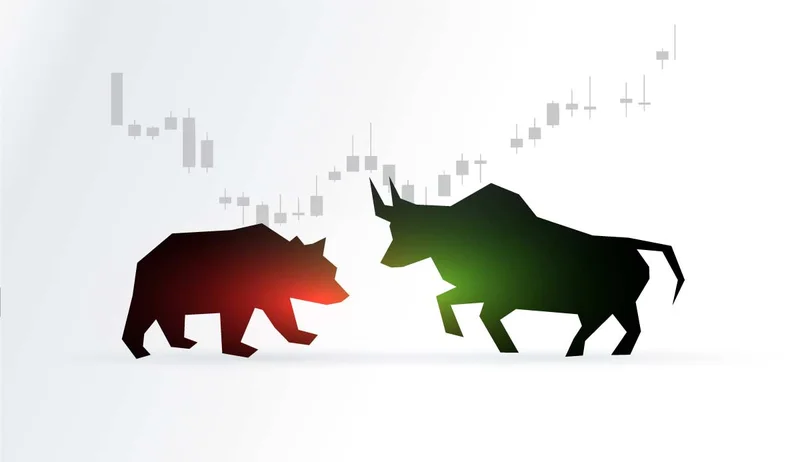Alright, let's cut the crap. Nvidia's recent earnings report? Astronomical. A $57 billion revenue quarter, up 62% year-over-year. Data center revenue alone hit $51.2 billion. CEO Jensen Huang is out there saying demand for AI compute is driven by three simultaneous revolutions. Sounds like a party, right? The kind that makes you forget to check your bank balance.
The Nvidia Narrative vs. Reality
But here's where the data analyst in me gets twitchy. These numbers, as impressive as they are, exist within a broader economic context that's… well, let's just say less exuberant. Ray Dalio, never one to mince words, is calling this a "big bubble with big wealth gaps." He argues that the market's vulnerability isn't about earnings (Nvidia is crushing it there), but about liquidity—who has the cash, and what happens when they need it? Nvidia turns negative after Ray Dalio warns the latest market boom is a ‘big bubble with big wealth gaps’ poised for a politically explosive bust
Dalio points out the top 10% of Americans hold nearly 90% of all equities. Think about that for a second. Ninety percent. That's not a market; that's an oligarchy with extra steps. And that top 10% accounts for roughly half of all consumer spending. So, what happens when they start feeling the pinch?
The K-Shaped Recovery's Dark Side
We're seeing a K-shaped recovery in stark relief. The wealthy are driving consumption, while lower-income households are getting squeezed by tariffs, borrowing costs, and rent. Moody's Analytics backs this up—wealthy households are driving almost all consumption growth. Morgan Stanley calls the inequality "completely wackadoo," which, coming from a wealth management firm, is pretty telling. Even Jerome Powell at the Fed admits companies are seeing a "bifurcated economy." (Translation: two completely separate economies based on income.)
And this is the part of the report that I find genuinely puzzling. How can Nvidia be raking in billions on AI chips when half the country is struggling to keep the lights on?
The answer, I suspect, lies in the nature of AI investment itself. It's not Main Street buying these chips; it's hyperscalers—Amazon, Google, Microsoft. They’re betting that AI will unlock even more wealth for the already wealthy. It's a closed loop, a self-fulfilling prophecy of inequality.
Dalio highlights that margin debt is already at a record $1.2 trillion. California is even considering a one-time 5% wealth tax on billionaires. That’s the kind of political shock that could force mass liquidations. A tightening of monetary policy? Classic bubble-popper.

Huang dismisses bubble fears, arguing that demand for AI compute isn't tied to any single trend but three simultaneous revolutions. But Dalio's not looking at Nvidia's fundamentals; he's looking at the architecture of the broader market.
What about the jobs report? The release initially portended optimism, with hiring far surpassing meager expectations. But the unemployment rate rose to its highest rate in nearly four years. Ultimately, the report didn't do much to change the narrative of a deeply divided Federal Reserve.
Stocks are headed for steep weekly losses, with the S&P 500 tracking toward a decline of over 2%, while the Nasdaq is positioned for an over 3% plunge. So far this month, the benchmark index is down around 4%, while the tech-heavy index is off over 6%. Stock futures little changed after market drops on renewed AI fears: Live updates
On Friday, investors will get a final read of November consumer confidence from the University of Michigan, after the preliminary reading found the measure near a three-year low. Several Fed officials are also set to speak, perhaps offering further clarity on the central bank's rate path in December — and beyond.
Misreading the Map
Here's my take: Nvidia's numbers are real (reported at $57 billion). The demand is real. But the sustainability of that demand is questionable in an economy this lopsided. Bubbles don't burst because valuations are too high; they burst when the music stops, and suddenly everyone needs cash. The wealth concentration makes the system more vulnerable than the headline numbers suggest.
The Specter of "Too Big To Fail"
Nvidia's success is not an isolated event; it's a symptom of a larger trend. That's why this isn't just about one company's earnings; it's about the underlying structure of the entire stock market today.
So, What's the Real Story?
Nvidia's success is a mirage—a dazzling display of technological prowess obscuring a fundamentally unstable economic foundation.
